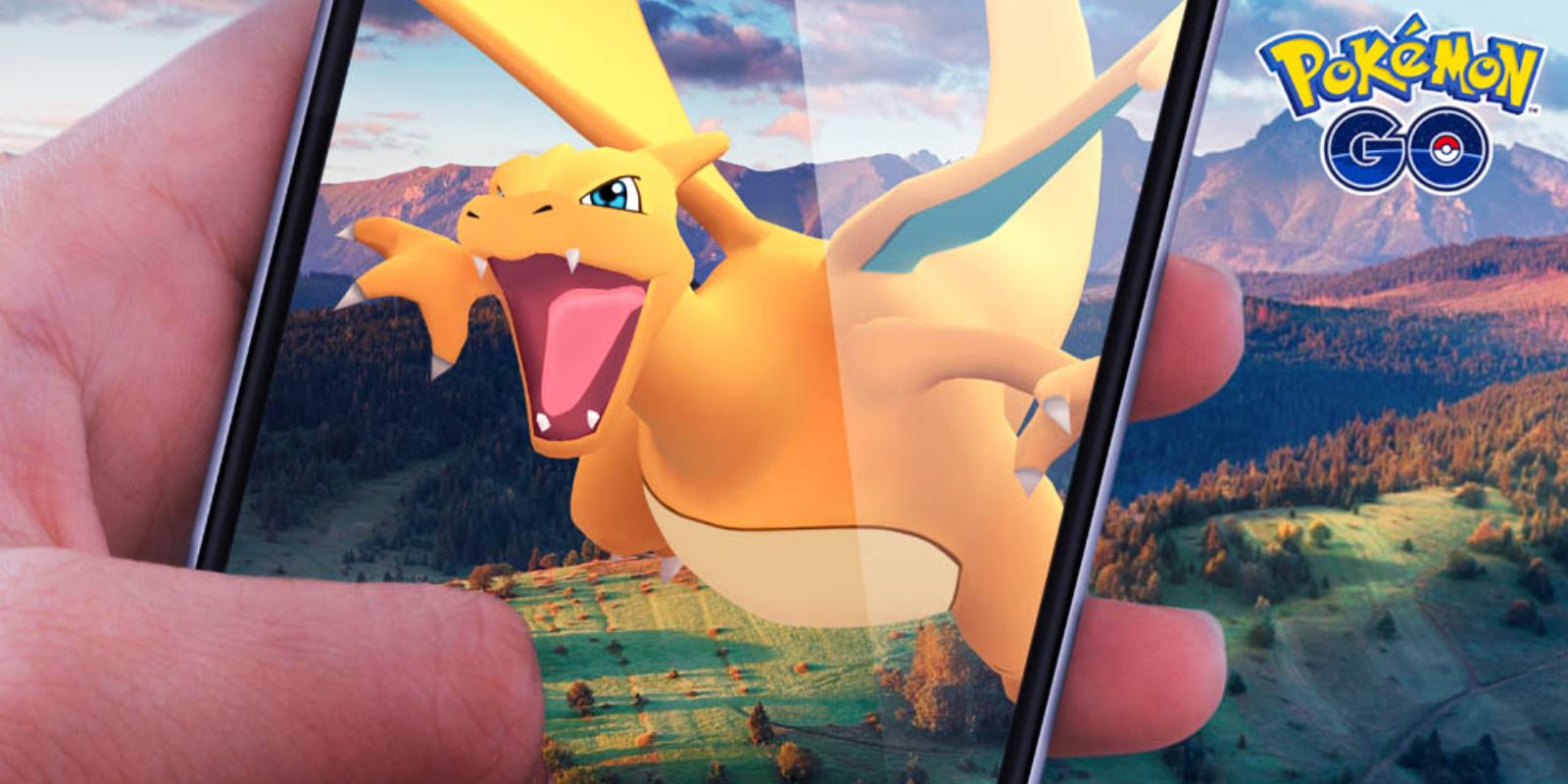
The summer of 2016 was arguably the summer of Pokémon thanks in large part to the viral success of smash hit Pokémon GO, an AR mobile title that let fans of the franchise live out their dreams of becoming Pokémon trainers all while exploring and interacting with their community. Despite how widely popular the game was, though, it initially drew some criticism from players for lacking in what many would consider essential features. Trainer interactions, for example, were particularly lacking in the eyes of many. In the years that have followed, though, Pokémon GO has gone above and beyond when it comes to adding in new mechanics, and the game has vastly expanded from what it once was as a result.
The first gameplay footage of Pokémon GO was leaked in the spring of 2016, and in the months that followed it was rolled out around the world to significant praise among casual and hardcore Pokémon fans alike. The game placed an emphasis on exploration and travel, encouraging players to get outside in order to encounter and catch Pokémon or visit Pokéstops. Despite a relatively rough starting period, thanks in part to the game's servers being so bloated due to the massive influx of players, it quickly became one of the most popular apps on the market, overtaking social platforms and earning the title of biggest mobile game in US history at the time of launch.
While Pokémon GO's player base has significantly dwindled since then, it seems to be far from dying, thanks in large part to consistent updates from its developers. Although it may not ever return to the massive levels of success it saw back in 2016, Pokémon GO maintains relevancy thanks to cooperative and competitive multiplayer additions, new milestones to reach, and greater rewards to earn. From research missions from Professor Willow to the introduction of familiar Team Rocket characters, Pokémon GO's many iterations since launch can at times be difficult to keep track of. Here are a few of the biggest and best of the game's updates.
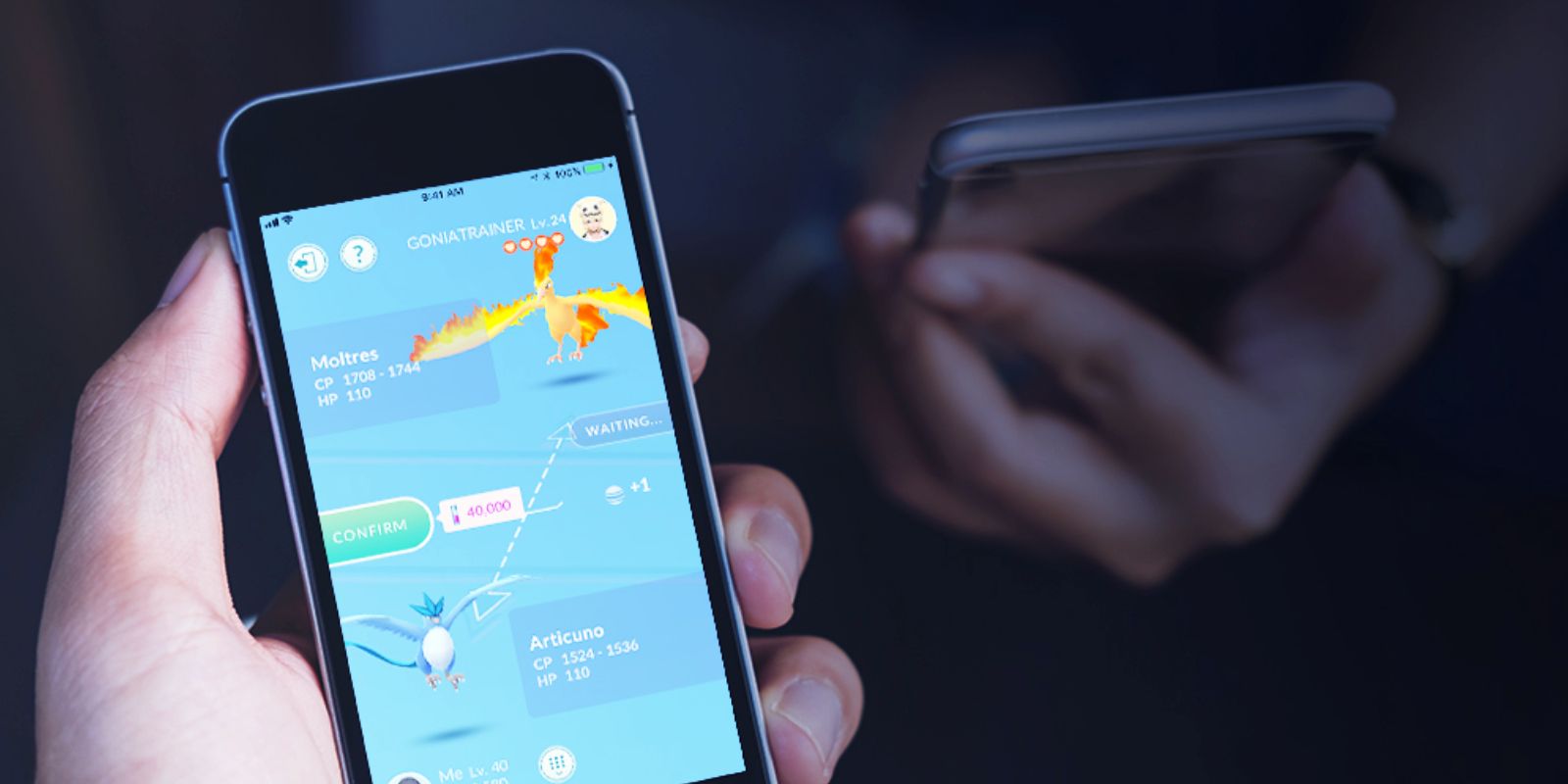
Perhaps one of the most highly requested features when the app first launched was the inclusion of trading, which would allow players to swap Pokémon with one another to help complete the Pokédex. Trading was seen as especially helpful thanks to Pokémon GO's addition of region-exclusive Pokémon; a friend visiting from another country could be able to trade with other players in the area in order to collect Pokémon they may otherwise not have been able to. It also could have helped to make the game feel more cooperative - when Pokémon GO initially came out, it was severely lacking in terms of mechanics that encouraged playing with friends.
Fortunately, since 2016 the game has been majorly reworked to make it a more multiplayer-friendly experience. Pokémon GO trainers can add one another as friends through the use of friend codes, and they can support and assist one another by sending over gifts at a rate of one per day, though this rate as well as various other features was temporarily adjusted due to the COVID-19 pandemic. Gifts from friends can contain anything from Pokémon eggs to potions and Poké Balls, and more often than not these items are of a higher value than what players could normally obtain from Pokéstops. Trading was also finally implemented into Pokémon GO, and trainers are now able to swap Pokémon with anyone on their friends list - provided they are within range.
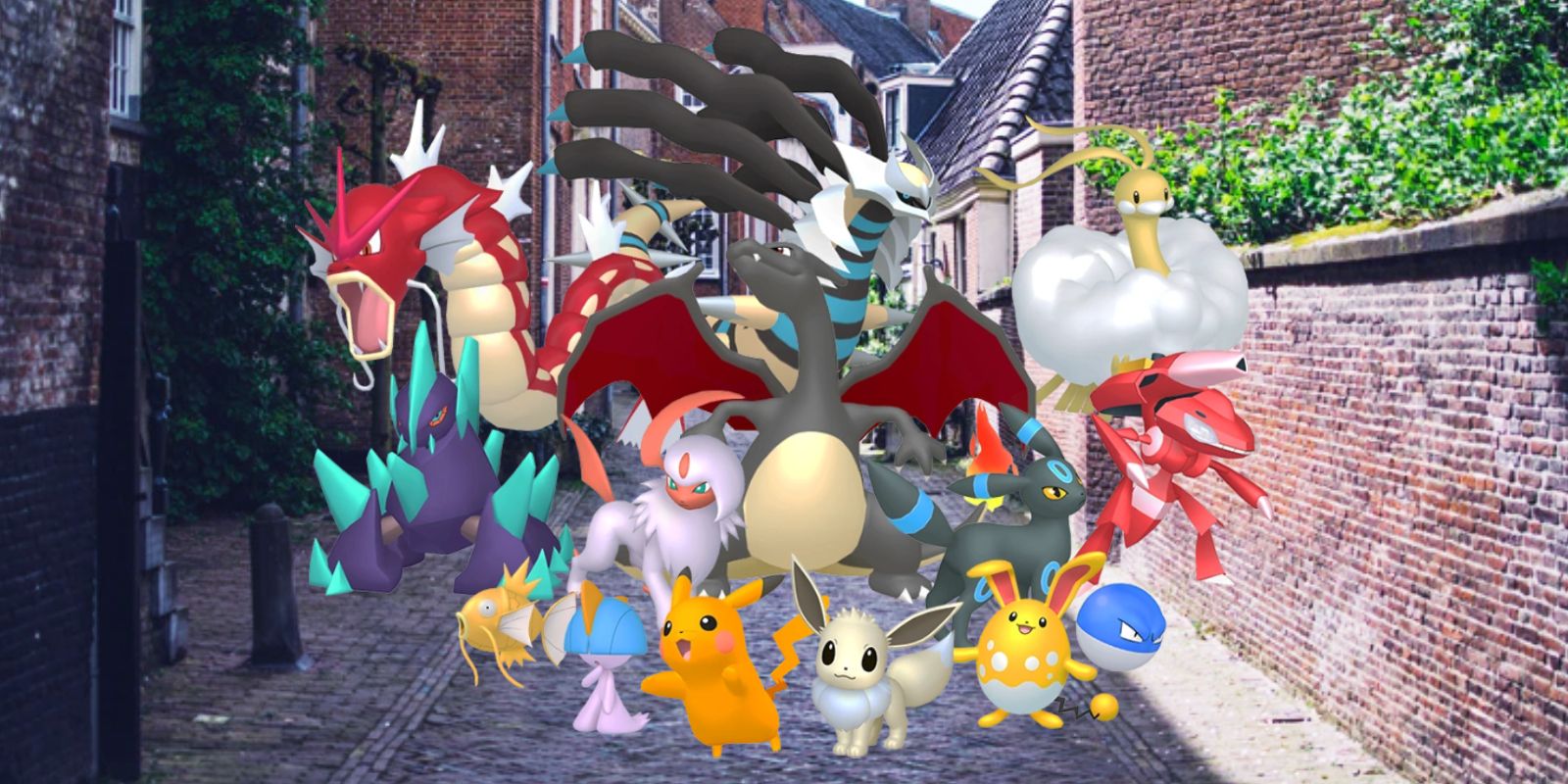
The trouble with Pokémon GO upon launch was that there was seemingly little incentive to interact with the game once most Pokémon had already been collected once. All it took was a quick glance at the screen to confirm whether the Pokémon in the area included any that had yet to be caught or evolved. Pokémon GO's gradual introduction of Shiny Pokémon changed that, prompting trainers to keep an eye out for rare and colorful variants of Pokémon they may have already caught.
Lucky Pokémon appeared as another addition, and one that further incentivized trading between friends. Any Pokémon that has been traded now has a small chance to become Lucky, which makes it significantly stronger than its standard counterparts. Pokémon GO has taken big steps when it comes to encouraging players to stick around and make use of familiar features. Research tasks, handed to trainers by the game's Professor Willow, also help make otherwise standard gameplay more enticing thanks to the introduction of new rewards.
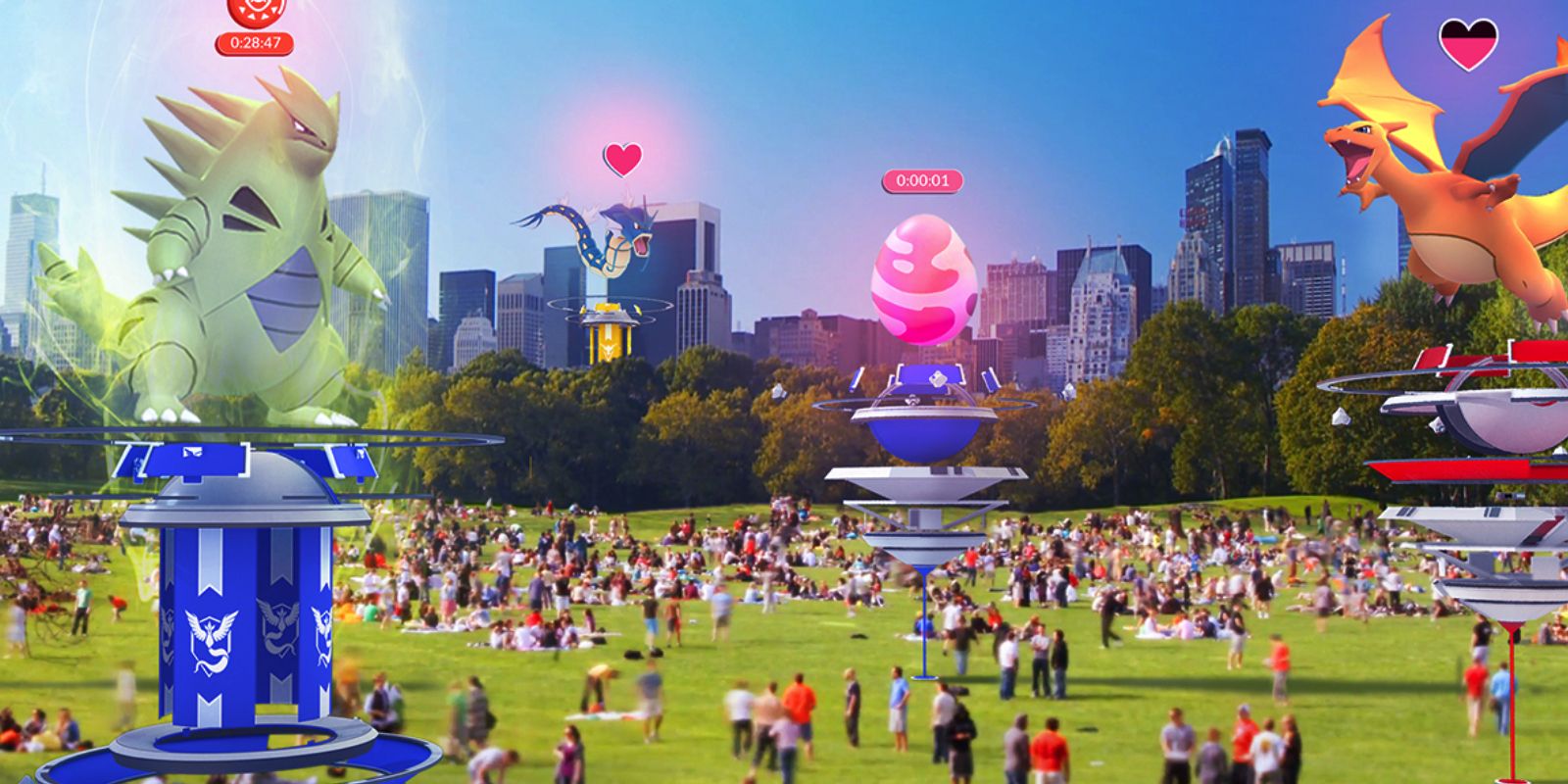
Training and sending gifts aren't the only ways to engage with other Pokémon GO players now. During the game's initial release, another frequently requested element was that of player-versus-player Pokémon battles. Fighting against other trainers is a major staple of both the Pokémon games and the anime, meaning that many fans of the franchise were left disappointed when it was initially excluded from the launch of Pokémon GO. In the game's current state, though, players can finally assemble teams of Pokémon to go up against other trainers in their league. Both trainers receive significant awards after each battle, too, which makes it even more worthwhile. For single player fans, there are also NPC battles now thanks to the presence of Team Rocket in the game.
Raid battles are another element that's helped to draw Pokémon GO players together. Given the higher level of difficulty, multiple trainers will need to battle at once in order to earn a chance at capturing the Boss Pokémon of the raid. The feature has even been expanded significantly from its introduction, and now there are Mega Raid Battles and EX Raid Battles for trainers to take on if they're looking for an even more difficult challenge. It's helped to make the world of Pokémon GO more dynamic and engaging, providing high risks and high rewards for any players willing to gather a group in order to take on a raid.
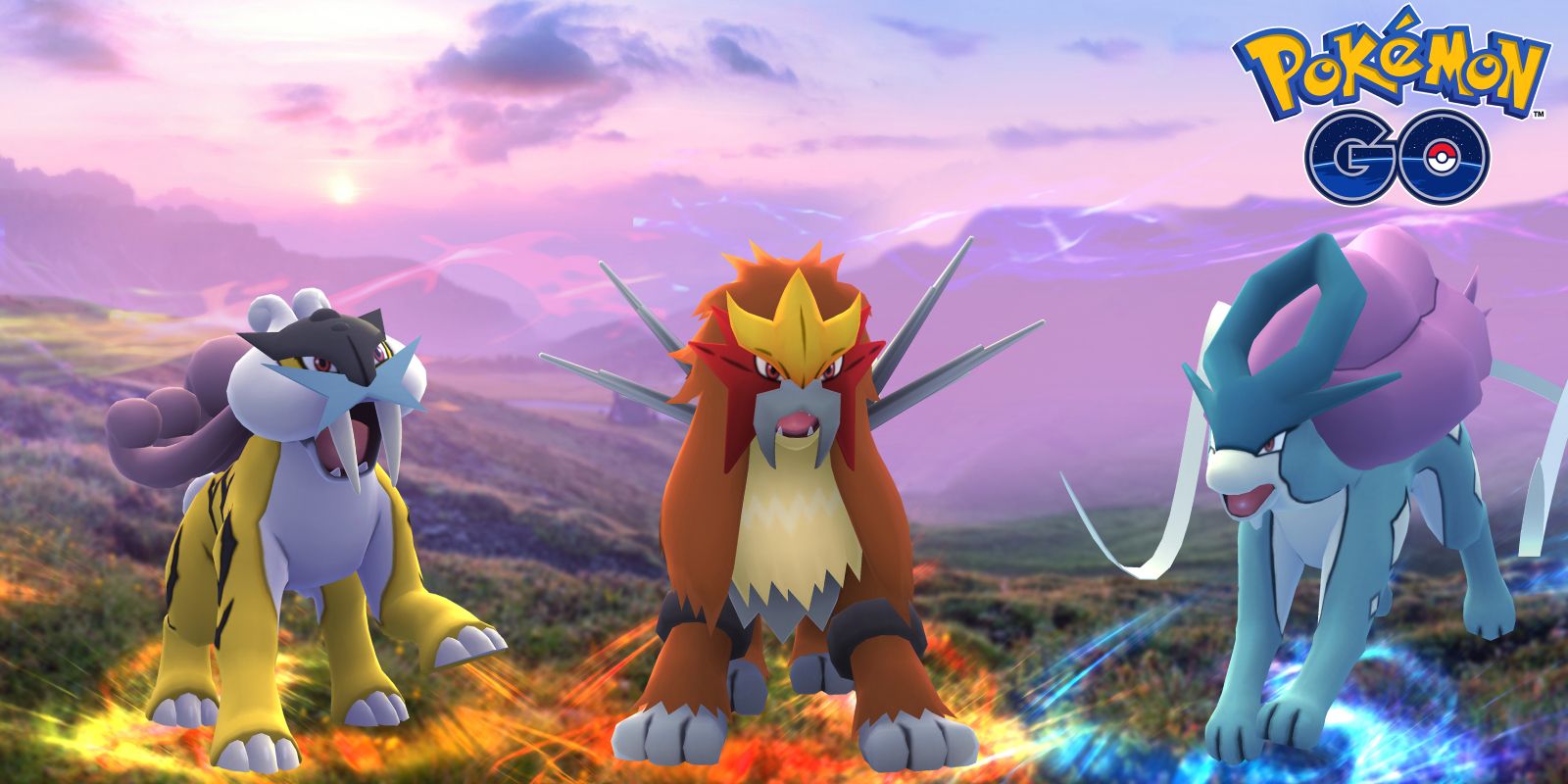
The goal of Pokémon has arguably always been to "catch 'em all", filling up the Pokédex with as many different Pokémon as possible all while building up strong teams and bonds throughout the journey. Pokémon GO is no exception to this rule, and the initial release of the game saw players scrambling to complete the first iteration of its Pokédex as quickly as possible. For the vast majority of trainers, though, it seems as though the finish line will perpetually be out of reach - which is arguably a big part of the game's longevity.
Pokémon GO has added multiple new generations of Pokémon since 2016, as well as various Legendary Pokémon, meaning that it can feel at times as though there are always new entries to fill out in the Pokédex. Thankfully, it's a bit easier now due to the subsequent addition of Buddy Pokémon as well. This release method goes a long way in helping the game consistently grow while providing long-time players with reasons to keep returning to Pokémon GO.
from ScreenRant - Feed https://ift.tt/3kkmRY2


0 Comments